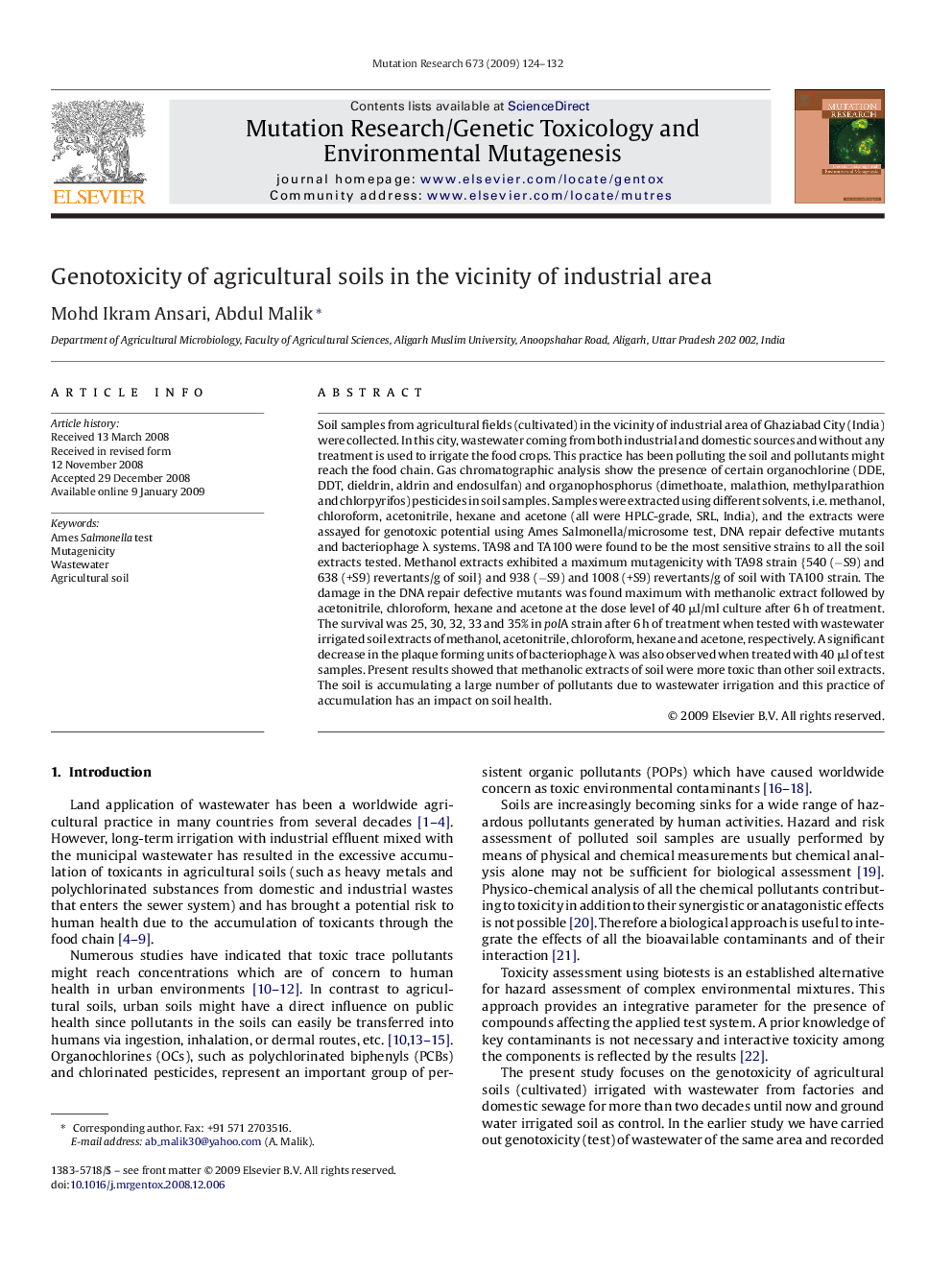| کد مقاله | کد نشریه | سال انتشار | مقاله انگلیسی | نسخه تمام متن |
|---|---|---|---|---|
| 2148781 | 1089581 | 2009 | 9 صفحه PDF | دانلود رایگان |

Soil samples from agricultural fields (cultivated) in the vicinity of industrial area of Ghaziabad City (India) were collected. In this city, wastewater coming from both industrial and domestic sources and without any treatment is used to irrigate the food crops. This practice has been polluting the soil and pollutants might reach the food chain. Gas chromatographic analysis show the presence of certain organochlorine (DDE, DDT, dieldrin, aldrin and endosulfan) and organophosphorus (dimethoate, malathion, methylparathion and chlorpyrifos) pesticides in soil samples. Samples were extracted using different solvents, i.e. methanol, chloroform, acetonitrile, hexane and acetone (all were HPLC-grade, SRL, India), and the extracts were assayed for genotoxic potential using Ames Salmonella/microsome test, DNA repair defective mutants and bacteriophage λ systems. TA98 and TA100 were found to be the most sensitive strains to all the soil extracts tested. Methanol extracts exhibited a maximum mutagenicity with TA98 strain {540 (−S9) and 638 (+S9) revertants/g of soil} and 938 (−S9) and 1008 (+S9) revertants/g of soil with TA100 strain. The damage in the DNA repair defective mutants was found maximum with methanolic extract followed by acetonitrile, chloroform, hexane and acetone at the dose level of 40 μl/ml culture after 6 h of treatment. The survival was 25, 30, 32, 33 and 35% in polA strain after 6 h of treatment when tested with wastewater irrigated soil extracts of methanol, acetonitrile, chloroform, hexane and acetone, respectively. A significant decrease in the plaque forming units of bacteriophage λ was also observed when treated with 40 μl of test samples. Present results showed that methanolic extracts of soil were more toxic than other soil extracts. The soil is accumulating a large number of pollutants due to wastewater irrigation and this practice of accumulation has an impact on soil health.
Journal: Mutation Research/Genetic Toxicology and Environmental Mutagenesis - Volume 673, Issue 2, 27 March 2009, Pages 124–132